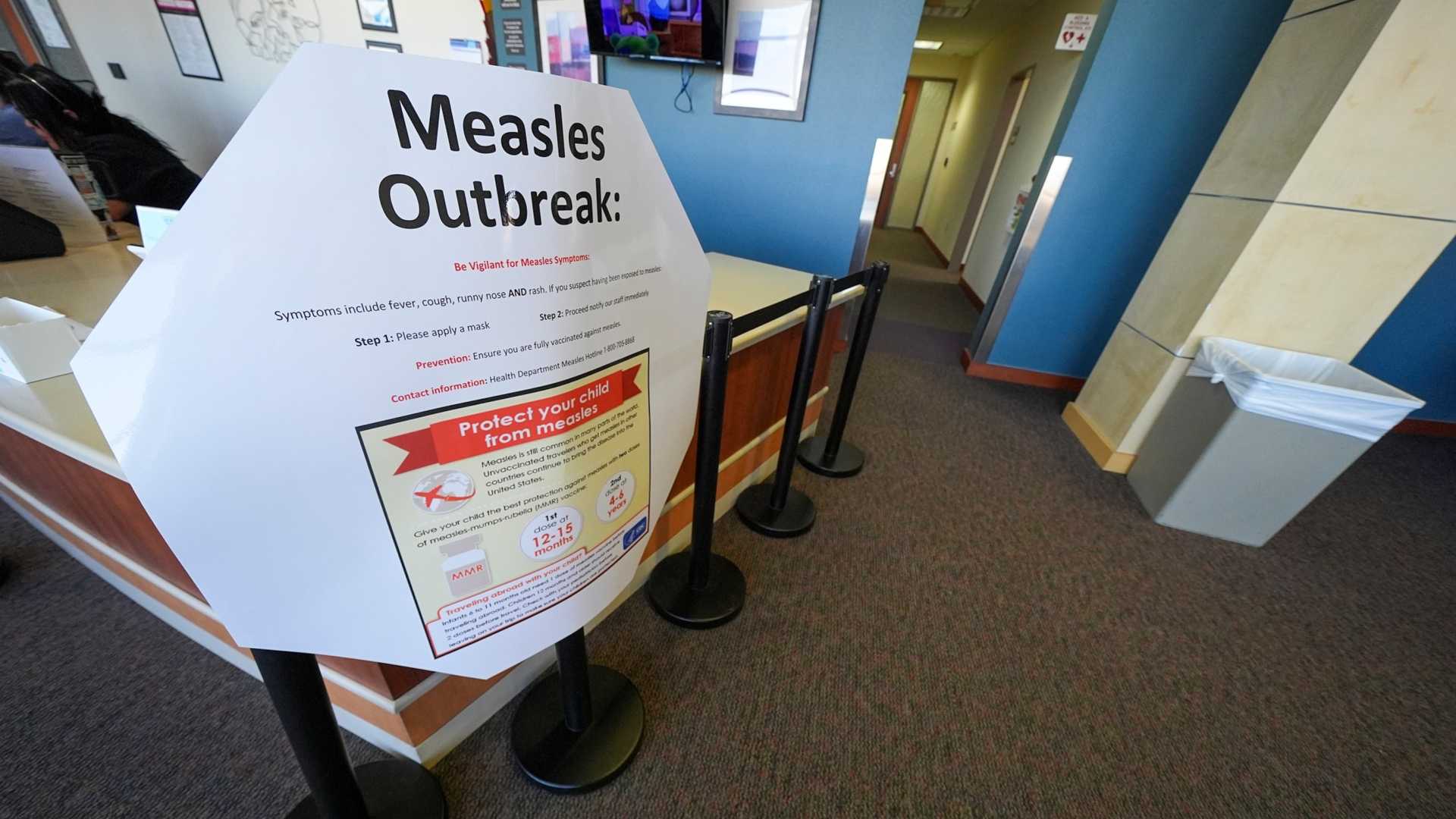Health
Second Child Dies from Measles as Texas Outbreak Escalates

SEMINOLE, Texas — U.S. Health and Human Services Secretary Robert F. Kennedy Jr. visited West Texas on Sunday following the death of a second child from a measles-related illness amid a growing outbreak. The child, an 8-year-old girl, died early Thursday at UMC Health System in Lubbock due to complications known as measles pulmonary failure. Officials confirmed she had not been vaccinated and had no underlying health issues.
The incident marked the third measles death in this outbreak, which has seen nearly 500 cases reported in Texas, according to the Texas State Department of Health Services. The outbreak, which started in late January, has spread to neighboring New Mexico, Oklahoma, and Kansas, with an additional 54 cases reported in New Mexico and 10 in Oklahoma, as health officials work to manage the epidemic.
During the visit, Kennedy expressed condolences to the families impacted by the deaths. “I wanted to come down here quietly to console the families and be with the community in their moment of grief,” he stated in a social media post. He reinforced that controlling this outbreak is a priority, noting that vaccination is the most effective means of prevention. The measles, mumps, and rubella (MMR) vaccine is 97% effective after two doses.
Dr. Manisha Patel, a Centers for Disease Control and Prevention (CDC) incident manager, emphasized the importance of vaccinations in preventing further illness. During a separate press conference, she advised parents not to postpone care if their children exhibit symptoms, urging them to consult health professionals directly.
The outbreak has contributed to a national increase in measles cases, with the U.S. currently reporting over 600 cases this year—more than double the total from 2024. Notably, 95% of these cases involve individuals who are unvaccinated or those with an unknown vaccination status, according to CDC data.
Senator Bill Cassidy from Louisiana, a physician who supported Kennedy’s confirmation as health secretary, criticized the messaging surrounding vaccination. “Everyone should be vaccinated! There is no treatment for measles. No benefit to getting measles,” he declared, urging health officials to convey this message clearly before another child dies.
Concerns about misinformation and the encouragement of alternative treatments, such as vitamin A supplements, have also surfaced amid the outbreak. Doctors warn against such treatments unless administered under supervision, as overuse can lead to additional health complications.
As the outbreak persists, experts believe that the situation could continue for several more months if vaccination rates do not improve. “The vast majority of cases are in unvaccinated individuals, particularly children younger than 17,” remarked Aaron Davis, a spokesperson for the UMC Health System.
Kennedy acknowledged the urgency for public health officials to act decisively and stated that he is willing to deploy additional resources to Texas health agencies to combat the outbreak. “We will continue to follow Texas’s lead and offer support to other affected jurisdictions,” he added.
The Measles vaccination schedule recommends the first dose for children between 12 and 15 months of age, with a second dose administered between ages 4 and 6. Officials are urging the public to stay informed about the risks of measles as misinformation could exacerbate health complications and hinder efforts to bring the outbreak under control.












